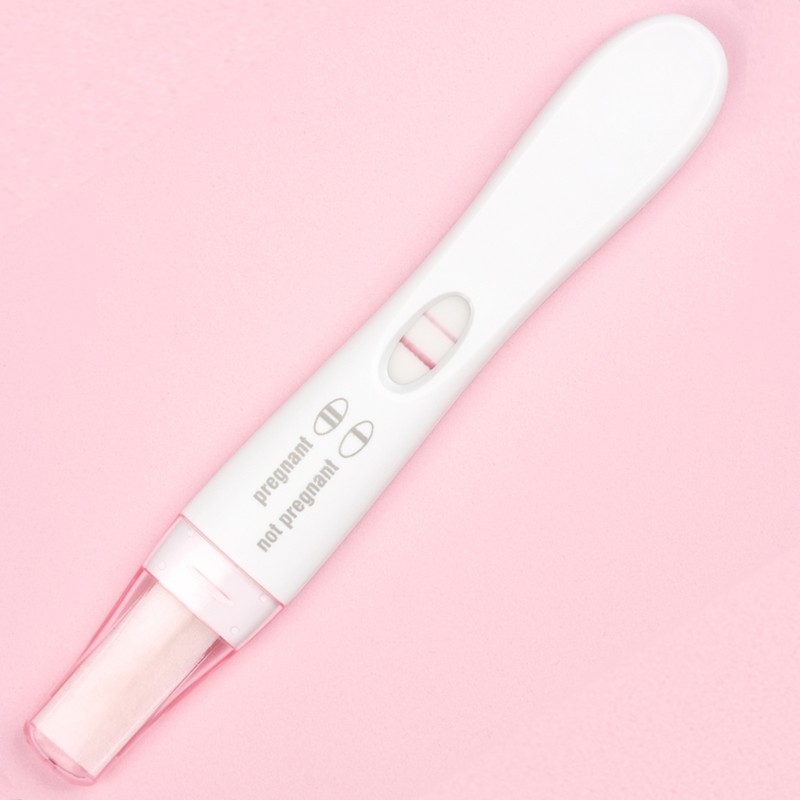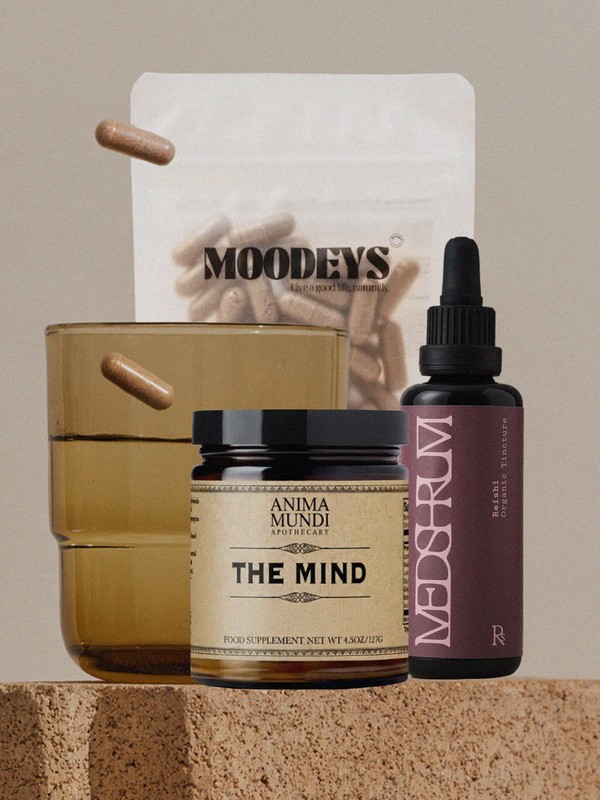Everything You Need To Know About Fertility
What are the main causes of infertility in women and men?
When I see a woman for their first consultation, one of the words they will often use to describe themselves is infertile. When I then ask how they know they are infertile, they will simply say ‘because I've been told I am’. Words are very powerful, especially when they have negative connotations, and I have always really disliked the word infertility and never use it, instead I use ‘fertility issues’. There are countless underlying factors that may be stopping you from getting pregnant, from weight to age, lifestyle and diet. It’s important to work out which of these it could be as well as ruling out any medical conditions by seeking help if you’ve been trying for longer than 12 months.
What are the main challenges?
For most people, the reality of having a baby isn’t as simple as just having sex and then falling pregnant quickly. With one in seven couples experiencing fertility issues, there is no single best approach that will work for everyone, as each individual has their own situation. But these are the five most common baby-making mistakes you might be making and how to correct them:
Only having sex during the ovulation period: Some couples try to ‘save up’ sperm for the ovulation period, and then barely have any sex at all through the month. While it’s true you’re most fertile during this time, you can still try to conceive every two or three days regularly throughout the month to maximise your chances.
Mistiming ovulation: If you have an ovulation predictor kit, or if you’re charting your basal body temperature or using the calendar method to try to identify ovulation, you may think it makes sense to get physical the day of ovulation – but that may be too late. After ovulation, the egg can only be fertilised for about 24 hours. If you’re wrong about ovulation, you’ll have to wait to try again the following month. Also, as sperm has the potential to survive for up to five days, and the egg 12-24 hours, it is highly recommended to have sex on alternate days four to six days prior to ovulation and continue doing so for another four to six days after it.
Having too much sex: Some couples assume that conceiving is a simple formula: the more sex you have, the easier and sooner you’ll conceive. But more isn’t always better. If it’s for reproductive purposes alone, having sex multiple times a day or even every single day could cause ‘burnout,’ and the couple may begin to view sex as little more than a pre-ovulatory chore.
Neglecting your own health & wellbeing: To maximise your fertility, it’s important to make nutritional and lifestyle assessments of your diet, work-life balance, your relationship, and also your knowledge and awareness of your own fertility. Mind, body, emotional and psychological factors such as stress levels or poor diet and how you are managing them can all adversely affect your chances of conception
Not getting help soon enough: No one wants to admit they may have a problem, but if you’re aged 30 or over and have been trying to conceive for more than a year, then it’s best to seek medical advice. Many couples also wrongly assume that the woman may have a problem, when in 15% of couples it will be solely a male fertility problem and in around 25% there will be a problem with both partners.
How do you know when you or your partner has fertility issues?
If you’ve been trying for a while it’s always sensible to check out how many of the factors most commonly associated with difficulties conceiving may apply to you. Some of these may be to do with genetics (over which you have no control) but others can be lifestyle related and capable of improvement. Though it takes on average between 8-12 months for you to conceive (which lots of couples don’t know. They think it should happen much quicker than this), the more of these factors that apply to you the sooner you should seek advice and take action. This can be difficult as GPs are often reluctant to do anything other than advise you to keep trying for at least a year but some may be willing to do some tests for you earlier than this if they know you are likely to find it more difficult than most. These are generally blood tests to check your hormone levels on certain days of the month, which will show, along with other things, if you are ovulating or not. Another blood test and scan will show your egg reserves and a semen analysis will also be done for your partner.
And when should you seek help?
It is very common for it to take up to 12 months to conceive, however if you are over 35 and have been doing all you can then I’d suggest visiting your GP or a fertility expert after six months.
Can you boost fertility?
I’m asked this question every day. My top tips are:
Eat well: Nutrition plays such an important role when it comes to fertility. It’s really important to consume nutritious, nutrient-dense food prior to getting pregnant, because what you need to do is to be able to build healthy eggs and healthy sperm. You should eat a whole range of foods such as green leafy vegetables, eggs, nuts, good fats, yoghurt and beta carotene-rich foods such as tomatoes, carrots and red peppers.
Get fit: Do some form of exercise for at least 30 minutes a day. Whether it’s walking, running or something totally different, exercise releases the endorphins needed to maintain a positive state of mind during your fertility journey. However, men should not over-exercise. Too much exercise – especially cycling – can divert testosterone away from the testicles and his sperm count will drop.
Have more sex: The truth is many couples do not have sex frequently enough, and when you’re trying to conceive, sex is obviously key. Although sex tends to become more stressful than enjoyable for many couples who are trying to conceive, it is absolutely essential that you are having sex at least three times weekly during your fertile period because sperm can live up to a week inside you so regular sex helps you ensure a constant flow of sperm for ovulation.
Cut out cigarettes: If you’re trying to get pregnant, smoking is a big no-no. Smoking is hugely detrimental to fertility – to eggs and to sperm – not to mention the future health of the unborn child.
Reduce alcohol: The fact of the matter is that research shows us that on average, the more alcohol you drink, the longer it will take you to get pregnant and the less likely you are to be successful. For women, alcohol may contribute to irregular periods, irregular ovulation and luteal phase defects, reducing chances of conception and for men, alcohol can affect sperm morphology and motility, and cause free-radical damage to the DNA sperm carries. I recommend you cut out or at least cut down on alcohol to boost your chances of successful fertility.
Stress less: Trying for a baby, especially when you’ve been trying for a while, can be a stressful time – that’s why it is important to actively take steps to reduce stress in your life and find the stress-management techniques that work for you, such as yoga, meditation, swimming, running or just taking a long bath. I recommend acupuncture to my patients as it can help with help with blood flow to the uterus and the ovaries, and beta-endorphin release, which means a greater sense of relaxation and wellbeing.
Take supplements: I always advise couples, especially those with busy lives, to consider a multi-vitamin and mineral that contains folic acid, zinc and selenium. Many women we see are depleted in vitamin D too, so make sure you take that as a supplement as well. It’s also important to build omega 3 into the body prior to getting pregnant.
What role does weight and lifestyle really play?
Everyone’s fertility is different. Some women have much better fertility than others their age. I can’t tell you a specific age when everything falls off a cliff, because that’s not the way it works. But we do know that it’s easier to get pregnant in your 30s, than it is your 40s.
Weight and in particular, being overweight or underweight, does make a difference to fertility. Losing a small amount of weight – as much as 10%, if possible – will help to regulate your cycles and may make a difference between getting pregnant and not.
Lifestyle makes a huge difference for both partners. If you’re drinking too much, smoking too much or using recreational drugs, you should stop in preparation for pregnancy. Also, look at your work life balance. Many couples I see work very, very hard. They’re leading very stressful lifestyles. This can deplete a woman of vital nutrients that are needed for your future fertility.
Can supplements help?
Yes. Even if you follow a balanced diet, I would still recommend taking supplements.
Around 30% of women don’t eat five portions of fruit and vegetable a day and the way we lead our lives in the 21st century doesn’t help. When you’re very stressed, eating processed food and drinking alcohol, you’re depleting your body of vital nutrients that are needed for fertility and pregnancy.
Do sexual positions matter?
As long as there’s passion and intimacy between you and your partner, any position is fine. But what I do encourage is trying to have sex in the morning. Testosterone is the hormone of desire, and men have more in the morning than in the evening. So, focus more on making room for that time, rather than on position.
How can you identify your exact ovulation dates?
If you’ve been on the pill for a while then you won’t know your natural cycle. Now’s the time to really get to grips with it.
The basics:
-
Your menstrual cycle begins on day one of your period and ends the day before your next period. Twenty eight days is an average cycle length, but as long as it’s between 23 and 35 days and is regular (no more than seven days’ variation each month), then this is considered normal.
-
Each month, around 20 immature eggs start to develop within the follicles in the ovaries and usually only one of these will develop to full maturity while the others shrivel away. Around mid-cycle, this egg will then be released, which is ovulation.
-
While you can use ovulation sticks and thermometers to track ovulation, by the time you see the result you want to see, ovulation may have occurred and you’ll miss your fertile window. The best way to determine when you are fertile is to understand your cervical secretions. The quantity and consistency gradually changes from dry to moist and sticky, to wet and slippery (like raw eggwhite) and back again. It’s during the ‘egg white’ stage you are at your most fertile.
-
By understanding your cycle, and especially your secretions, you may find that you actually ovulate much earlier or later than mid cycle.
How can you determine your egg quality?
The best way is through a blood test and scan. I’ve recently launched ‘Plan Ahead’, a pin-prick blood test that assesses your AMH (anti-mullerian hormone), a substance produced by the ovaries. The level of AMH correlates with your ovarian reserve, and this declines with age.
This AMH result will not, however, tell you about the quality of your eggs but we do know that this too declines with age. As a basic principle, if your AMH does come back low, indicting low reserves, but you are in your late 20s or early 30s, then the number of eggs you do have are likely to be chromosomally normal – your egg quality should be good. The older you are the more chromosomally abnormal your eggs are likely to be. This is why it’s harder to get pregnant at an older age.
Where should you go for help?
The NHS offers most treatments, however it can depend on where you live as to what restrictions there may be. There are many private clinics across the UK too. At the Zita West Clinic we provide IVF, but our services can also be accessed even if you aren’t having treatment with us, from a consultation with one of our doctors, to nutritional advice, acupuncture or hypnotherapy.
For more information and a holistic approach to fertility, go to ZitaWest.com
DISCLAIMER: We endeavour to always credit the correct original source of every image we use. If you think a credit may be incorrect, please contact us at info@sheerluxe.com.






